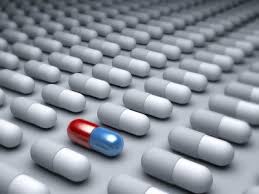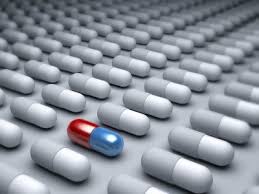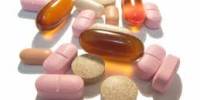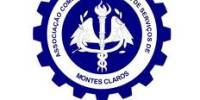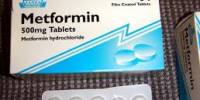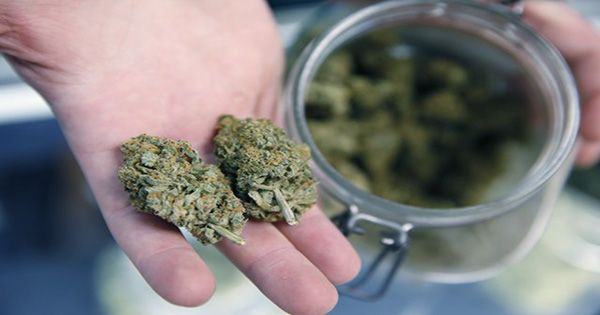INTRODUCTION
In Bangladesh the pharmaceutical sector is one of the most developed hi-tech sectors which are contributing in the country’s economy. After the promulgation of Drug Control Ordinance – 1982, the development of this sector was accelerated. The professional knowledge, thoughts and innovative ideas of the pharmacists working in this sector are the key factors for these developments. Due to recent development of this sector it is exporting medicines to global market including European market. This sector is also providing 97% of the total medicine requirement of the local market. Leading pharmaceutical companies are expanding their business with the aim to expand export market. Recently few new industries have been established with high tech equipments and professionals which will enhance the strength of this sector.
Rangs Pharmaceuticals Ltd is one of the leading Companies in Pharmaceuticals sector. After all necessary arrangements it launched its production on 2004 with 12 products which were mainly antibiotic and anti ulcerants. There after it did not look back. At present it manufactures 120 important products.
SOLID DOSAGE FORM MANUFACTURING:
TABLET DEPARTMENT
Tablet:
Tablet manufacturing unit one of the most important unit in the production area of a pharmaceutical company. Tablet can be defined as a solid pharmaceutical dosage form containing active drug substances and excepients & prepared either by compression or molding method (according to NF). In Rangs pharmaceuticals Ltd, solid section is the biggest section of all. Solid section provides about 70% of the total turn over per year. By this way this unit plays a vital role in the financial aspects of the company.
Major steps of tablet manufacturing:
- Granulation
- Compression
- Coating
Tablet manufacturing area:
a. Dispensing area
b. Granulation area
c. Blending area
d. Compression area
e. Coating area
Dispensing Area:
Dispensing
Dispensing means to supply materials to the production area by proper weighing according to the relevant document and release it from the raw materials store.
Weighed raw materials from warehouse are also rechecked here.
Machine for Dispensing:
Electronic Balance
Granulation Area:
Granulation:
The process, by which the primary active ingredients and excepients powder particles are made to adhere to form larger multi particles, is called granulation.
Granules size range for pharmaceuticals: 0.2-4
Types of granulation:
1) Wet granulation
2) Dry granulation
3) Direct compression
In Rangs Pharmaceutical only wet granulation and direct compression are done.
Purpose for granulation:
- To prevent segregation of the constituents of the powder mixture
- To improve the flow properties of the mixture
- To improve the compaction characteristics of the mixture
Process of wet granulation
Raw material screening through the vibratory sifter
Mixing of active ingredients with excepients
Wet mass
Pass through Grating & Shredding machine
Drying
Sieving
Blending with lubricant
Machine:
1. Tablet mixing machine
Rapid mixer granulator
Model-RMG-400
Capacity-120 kg
Clit
Origin-Germany
2. Multimiller
Clit
Origin-Germany
3. Fluidized bed dryer
SOLACE AERO DRYER
Capacity-120 kg
Blending Area
Blending:
Blending is the process of uniformly mixing the ingredients so that each tablet contains the unit amount of dosage.
Machine:
- 1. Double Cone blender
MARK
Model-DCB-600
Capacity-120 kg
Origin-Bangladesh
Compression Area
Compression:
The process of forming tablets in desired shapes compressing by sufficient pressure.
Factors to be considered during compression:
Temperature
Relative humidity
Compression Machine:
200GMP-SQUARE MODEL
Model-CPM D3
Capacity-130000
Running capacity-50000
Clit
Origin-Germany
200GMP SQUARE MODEL
Model-CPM B3B
Capacity-130000
Running capacity-78000
Clit
Origin-Germany
Coating Area
Coating:
A layer of a substance spread on the surface of the core tablet. Sugar coating was popular in past but it has many drawbacks. Modern tablet coating is polymer and polysaccharide based, with plasticizers and pigments included.
Types of coating:
- Film coating
Organic solvent based
Aquous solvent based
- Sugar coating
- Enteric coating
In Rangs pharmaceuticals only film and enteric coating is performed.
Steps of Film coating:-
- § Solvent
——- Organic
——- Aquous
- § Polymer
- § Plasticizer
- § Optional ingredients
— Anti-foam agent
— Colorant
Weight gain for different coating:
- Film coating : 2-3%
- Enteric coating :3.5-6%
Coating Machine:
- 1. NR Cota 29” Film coating machine
Model-FC-29
Capacity-20-30 kg
Origin-England
- 2. NR Cota 39” Film coating machine
Model-FC-39
Capacity-120 kg
Origin-England
Tablet Preparations in Rangs Pharmaceutical-
Brand Name | Generic name |
| Alverin Tablet | Alverine citrate |
| Ancotil 3 Tablet | Bromazepam |
| Antiplate Tablet | Clopidogrel |
| Antipro Tablet | Metronidazole |
| Colamin Tablet | Mecobalamine |
| Destacin Tablet | Desloratadine |
| Depresil Tablet | Flupenthixol |
| Melitroacen Hydrochloride | |
| Depanil-0.5 Tablet | Clonazepam |
| Depanil-2 Tablet | Clonazepam |
| Gatiquin 400 Tablet | Gatifloxacin INN |
| Kenodol-10 Tablet | Ketorolac Tromethamine |
| Lethiquin 500 Tablet | Levofloxacin Hemihydrate |
| Lipicut-10 Tablet | Atorvastatin Calcium |
| Lipicut-20 Tablet | Atorvastatin Calcium |
| Monprox 10 Tablet | Montelukast Sodium |
| Normogat 10 Tablet | Domperidone Maleate |
| NT-par 400 Tab | Albendozole |
| Ostacid D Tablet | Calcium Carbonate Heavy USP |
| Vitamine D3 | |
| Ostacid D Tablet | Calcium Carbonate Heavy USP |
| Vitamine D3 | |
| Ostacid 500 Tablet | Calcium Carbonate Heavy USP |
| Omag DR Tablet | Omeprazole Magnesium |
| Orafen SR Tablet | Diclofenac Sodium BP |
| Pivcilin Tablet | Pivmecillinam HCL |
| Ranflox 500 Tablet | Ciprofloxcin HCL |
| Ranflox 750 Tablet | Ciprofloxcin HCL |
| Ranvit-B Tablet | Thiamine HCL |
| Riboflavine 5 – Phosphate Sodium | |
| Pyriodoxine HCL (Vitamine B6) | |
| Nicotinamide | |
| Ranzith-500 Tablet | Azithromycin Dihydrate (USP) Micronized |
| Ranoxen 250 Tablet | Naproxen Sodium |
| Ranoxen 500 Tablet | Naproxen Sodium |
| Rampil 2.5 Tablet | Ramipril |
| Rampil 5 Tablet | Ramipril |
| Recofast 125 Tablet | Cefuroxime Sodium For Recofast Tablet |
| Recofast 250 Tablet | Cefuroxime Sodium For Recofast Tablet |
| Recofast 500 Tablet | Cefuroxime Sodium For Recofast Tablet |
| Redema 20 Tablet | Spironolactone |
| Furosemide | |
| Redema 40 Tablet | Spironolactone |
| Furosemide | |
| Sartec Tablet | Cetirizine Di – Hydrochloride |
| Sedaquil 7.5 Tablet | Midazalam Maleate |
| Vesocal-5 Tablet | Amlodipine Besylate |
| Vesocal-10 Tablet | Amlodipine Besylate |
| Vesocal Plus | Amlodipine Besylate |
| Atenolol | |
| Vesotan-8 Tablet | Candesartan Cilexetil |
| Vesotan-16 Tablet | Candesartan Cilexetil |
| Vesodil 6.25 Tablet | Carvedilol |
| Vesodil 12.5 Tablet | Carvedilol |
| Vesodil 25 Tablet | Carvedilol |
| Veramil-80 Tablet | Verapamil HCL |
| Veramil SR Tablet | Verapamil HCL |
| X-pectoran- 8 Tablet | Bromhexine Hydrochloride |
| Zenil-150 Tablet | Ranitidine Hydrochloride USP |
| Diversa Gold Tablet | Vitamin A Palmitate |
| Beta carotene 20% Dry Powder | |
| Ascorbic Acid (Vit C) | |
| Vitamin D3 | |
| Vitamin E | |
| Vitamin K | |
| Thiamine Mononitrate(Vit B1) | |
| Riboflovin (Vit B2) | |
| Nicotinic Acid (Niacin) | |
| Pyriodoxine HCL (Vitamine B6) | |
| Folic Acid | |
| Cyanocobalamin (Vitamine B12) | |
| Biotin | |
| Calcium Pantothenate (Pantothenic Acid) | |
| Calcium Carbonate Heavy USP | |
| Dried Ferrous Sulphate (Iron) | |
| Di – Calcium Phosphate (Phoshorous) | |
| Potassium Iodide (Iodine) | |
| Magnasium Oxide (Magnesium) | |
| Zinc Oxide (Zinc) | |
| Sodium Selenate Anhydrous (Selenium) | |
| Cupric Oxide (Copper) | |
| Manganese Sulphate (Manganese) | |
| Chromic Chloride (Chromium) | |
| Sodium Molybdate (Molybdenum) | |
| Sodium Chloride for Vitamine Product (Chloride) | |
| Potasium Chloride (Potassium) | |
| Boron Citrate (Boron) | |
| Nickel Sulphate (Nickel) | |
| Silicon Dioxide (Silicon) | |
| Stannous Chloride (Tin) | |
| Sodium Metavandate (Vanadium) | |
| Lutein 5% |
CAPSULE MANUFACTURING DEPARTMENT
ENCAPSULATION
According to the USP, “capsules are solid dosage forms in which the drug is enclosed in either a hard or soft, soluble container or “shell” of a suitable form of gelatin.”
Derived from the diminutive of the Latin word “capsa” meaning “box”, a capsule is literally “a little box” and can refer to any encompassing structure or small container.
Capsules are two types –
- Hard gelatin capsule
- Soft gelatin capsule
In Rangs Pharmaceuticals Hard gelatin capsules are produced. In which, the active is failed an the empty hard gelatin capsule shell in form of
· Powder
· Pellets
In Rangs Pharma powder are encapsulated with the help of semi automatic feeling machine and liquid is encapsulated with automatic capsule filling machine.
Capsule Preparations in Rangs Pharmaceutics:
Brand Name Dose
E-gold
Antif 250, 500mg
Curacid 20, 40mg
Droxil 500mg
Fungitrol 50, 150mg
Lindex 250, 500mg
Maxflo-U
Ngcef 200mg
Perpen 250,500
Prevencid 20,40mg
Pregmin
Pregmin-Z
Process of capsule manufacturing (powder):
Station having two parts upper plate and lower plate with negative air pressure collect shell from shell channel where cap remain at the top and body remain at the bottom.
- Upper plate contain cap and lower plate Contain body
- Lower plate goes feeding channel
- Body of capsule filled with Powder
- Both plates close to each other
- Finally at the end of Encapsulation operation shut down the machine
- Checking and polishing
- Packaging
In this section pellets are encapsulated with the help of semi automatic filling machine.
Process of capsule manufacturing (Pellets):
- Capsule shell in the hopper
- Shell channel
Station having two parts upper plate and lower plate with negative air pressure collect shell from shell channel where cap remain at the top and body remain at the bottom
- Upper plate contain cap and lower plate Contain body
- Lower plate goes feeding channel
- Body of capsule filled with pellets
- Both plates close to each other
- Finally at the end of Encapsulation operation shut down the machine
- Checking and polishing
- Packaging
- Machine
- 1. Cone blender
MARK
Model- DCB-406
Capacity- 160kg/B
Origin- Bangladesh
- 2. Semi automatic capsule filling machine
P+am
Model- SA-9
Capacity- 25000 capsule/Hr
Origin- India
- 3. Polishing & Cleaning machine
Hoonga- A Corporation
Origin- Korea
Problem may arise during encapsulation:
Weight variation
Capsule shell may be brittle when room condition is not maintained
E- Gold
It is a new technology that Rangs Pharmaceuticals has incorporated to product Licap. Only 3 companies at this moment manufacturing this product. Rangs Pharmaceuticals is one of those. This product is also very effective.
E-Gold 200 Licap:
Each Liquid Filled Hard Gelatin Capsule contains Vitamin E
200 mg (as alpha-Tocopheryl Acetate BP).
Advantages over soft gelatin capsule:
- Improve Bioavailability
- Economic
Materials use for E-Gold preparation:
- Vitamin E (Alpha tocopheryl)
- Soyabean Oil
- BHT
- E.H.G Capsule Shell #1
- Gelatin
- Green Lake Color
- Tween 80
- Purified Water
Process of E-Gold production:
- I. E-Solution preparation
- II. Bending solution preparation
E-Solution is prepared by following process:
BHT is added in soybean oil in a beaker
Heating
Cooling
Adding this solution in vitamin E
Filter
Banding solution preparation:
Banding solution is prepared by following process:
Gelatin is added in water
Take them 30 min
Stirring
Tween 80 is added (30 min)
- Taken in water bath (40 min or 1 hour)
- Color is added
- Left them over 1 night at 50°C temperature
Process of E-Gold manufacturing:
E-Gold manufacturing is done by automatic capsule filling and banding machine.
The process is following:
Check the room condition
Obtain QA report for capsule filling
Use the right capsule shell #1
Adjust the machine
Start filling
Keep record of starting time and finishing time
Finally at the end of encapsulation operation shut down the machine
Transfer filled capsule to the bend sealing area pass through the automatic bend sealing machine
Checking and polishing
Packaging
Problem may arise during E-Gold manufacturing:
Bubble Formation
Banana Effect
Machine
- 1. Automatic Capsule Filling Machine
P+am
Model- LF-40
Capacity- 40000/hr
Origin- India
- 2. Automatic Capsule Bending & Sealing Machine
P+am
Model- BS-40
Capacity- 40000/hr
Origin- India
SOLID PACKAGING:
The terminal stage of the production is packaging. This is the terminal stage at which a finished product gets a shape for marketing purpose. Proper packaging maintains the integrity of the pharmaceuticals. It should preserves drug efficacy as well as its purity, identity, potency and quality for its entire shelf life. The selection of package therefore begins with the determination of the product’s physico-chemical properties, its protective needs and marketing requirements.
Packaging materials are of two types:
- 1. Primary packaging materials
- PVC
- Aluminum foil
- 2. Secondary packaging materials
- Printed box
- Leaflet
- Labels
- Outer
- Printed tape
- Liner
There are two types of packing:
- 1. Blister packing
- 2. Strip packing
Only Blister packing is done in this section.
Blister Packing:
Usually tablets and most of the capsules is blister packed in this case, at first the PVC/PVDC /Aluminum foil is heated by heating plate. The packets are produced by the air pressure and immediately cooled. At the next stage tablets/capsules are filled into the pockets are pockets and the aluminum foil is sealed over the PVC/PVDC/ALU film by heating. Finally the blister pack cut into suitable size.
There are 3 types of Blister:
- 1. Alu-PVC blister
- 2. Alu-Alu blister
- 3. Alu-PVDC
Process of Packaging:
Blister forming
Tablet filling
Sealing the blister with printed alu- foll
Printing of batch no. & Exp. Date
Cutting into individual blister pack
Visual inspection
Packing
Warehouse after QA approval
Machine
- 1. Blister Packaging Machine
Hoonga
Model- MINISTER-VAL
Hoonga-A-Corporation
Origin- Korea
- 2. Blister Packaging Machine
Hoonga
Model- MINISTER-V
Hoonga-A-Corporation
Origin- Korea
- 3. Topical Blister Packager
Model- DPR-250
RUIAN JIANGHUA MACHINERY.CO. Ltd
Origin- China
LIQUID MANUFACTURING DEPARTMENT
Introduction
Liquid preparations are solution containing one or more chemical substances dissolved in a suitable solvent or mixture of muyually miscible solvent.
Liquid dosage form include
- § Syrap
- § Suspension
- § Emulsion
- § Paediatric Drops
- § Granules for suspension
- § Eye Drops
Liquid preparation in Rangs Pharmaceutical
Product | Pack size |
Antif P.D | 5 ml |
Droxil P.D | 5 ml |
Lindex P.D | 5 ml |
Xepodox P.D | 5 ml |
Product | Pack size |
Antif-DS | 100 ml |
Antif-GS | 100 ml |
Droxil-GS | 100 ml |
Lindex-GS | 100 ml |
Lindex-DS | 100 ml |
Pedicin-GS | 100 ml |
Ngcef-GS | 50 ml |
Perpen-GS | 100 ml |
Recofast-GS | 70 ml |
Ranzit-GS | 35 ml |
Xepodox-GS | 50 ml |
Eanzith-GS | 30 ml |
Fungitrol-GS | 35 ml |
Product | Pack size |
Antipro Suspension | 60 ml |
NT- per Suspension | 40 ml |
Normogut Suspension | 100 ml |
Ranvit-B Syrup | 100 ml |
Ranvit-B Syrup | 200 ml |
Sartee Syrup | 60 ml |
X-pectoran Syrup | 100 ml |
Babiz Syrup | 100 ml |
Babiz Syrup | 200 ml |
Laxativ Solution | 100 ml |
Laxativ Solution | 200 ml |
Syrup
Syrups are concentrated aqueous preparations of a sugar substitute with or without flavoring agents and medicinal substances.
Syrups provide a pleasant means of administering a liquid form of a disagreeable- testing drug.
Main ingredients of Syrup
Without the water and active ingredient syrup contains the following ingredients…
- The Sugar, usually sucrose, or sugar substitute used for sweetness and viscosity.
- Antimicrobial Preservatives
- Flavoring agent
- Coloring agent
STEPS OF SYRUP PREPARATION:
- Dispensing
- Manufacturing
- Storage
- Test sample given to QC
- After QC passed the sample, start filling and sealing.
- Packaging
Suspension:
Suspension is the process of preparing homogenous two phase system in which the internal or dispersed phase is solid and the external or continuous phase is liquid.
Steps of Preparation:
Carefully tare the container
Finely powder any ingredients not already in fine powder.
Mix the insoluble powder in a mortar
Adding first the ingredients of smallest bulk and diluting it with others increases order of bulk, using amount equal to the bulk already in the mortar.
Add enough vehicles to produce a smooth paste.
Add, in small amounts, any non volatile solid ingredients, dissolved in part of the vehicle, and mix well.
If necessary, dilute with the vehicle until pourable.
Examine the suspension critically.
Before use, rinse the fabric with a little vehicle to detouch loose fibers.
Strain into the tared bottle.
Add any volatile solid ingredients, previously dissolved in some of the vehicle, and mix well.
Add any liquid ingredients, rinse the measures and mix well after each edition.
Rinse the mortar and pestle with successive volumes of vehicle until they are quite clean, transferring the rinsing to the bottle.
Make up to volume with the vehicle and shake thoroughly.
Then the sample is given to the QC for test.
Filling and Sealing.
Packaging
Equipment used in Liquid Section in Rangs Pharmaceutical:
- Syrup Preparation Vessel
- Eulsifier-1
- Eulsifier-2
- Semi Auto Liquid Filling Machine
- Semi Auto Cap Sealing Machine-1
- Conveyer Table-1( Liquid )
- Bottle Washing Machine
- Bottle Dryer
- Colloid Mill
- Transfer Pump
- DM Plant
- Distilled Water Plant (120 L)
- Distilled Water Plant (40 L)
- Liquid Filtration Unit
Dry Syrup Section:
- Mechanical Sifter-2
- Double Cone Blander-2
- Semi Auto Powder Filling Machine
- Semi Auto Cap Sealing Machine-2
STERILE PRODUCTS MANUFACTURING
Parenteral products:
In Rangs Pharmaceuticals Parenteral products are prepared as sterile product. As Parenteral products are given directly to systemic circulation so sterility is a must.
Environmental conditions that are maintained in sterile product manufacturing:
Air:
The air of the sterile product manufacturing area should be strictly maintained. There are some air classifications for the manufacturing area to maintain CGMP. This are-
Air Classifications
Clean Area Classification (0.5 um particles/ft3) | ISO Designationb | > 0.5 m particles/m3 | Microbiological Active Air Action Levelsc (cfu/m3 ) | Microbiological Settling Plates Action Levelsc,d (diam. 90mm; cfu/4 hours) |
100 | 5 | 3,520 | 1e | 1e |
1000 | 6 | 35,200 | 7 | 3 |
10,000 | 7 | 352,000 | 10 | 5 |
100,000 | 8 | 3,520,000 | 100 | 50 |
HVAC system:
HVAC is an acronym for ‘Heating ventilation and air conditioning’ system and is sometimes referred to as climate control. The system helps to control humidity and temperature of the air within a building and are responsible for maintaining pressure relationships between spaces, ensuring smoke control. HVAC system works, primarily to provide healthy and comfortable interior conditions and are well designed to perform the task with minimal energy consumption and air, water pollutant emissions.
Use of HVAC System
Heating: Heating technology makes use of equipments such as a boilers, forced air gas furnace, heat pumps and radiant floor heat to heat the environment or interiors.
Cooling: Cooling technology includes equipments such as central and room conditioning, chillers, desiccant dehumidifiers and absorption cooling for various buildings.
Air ventilation and quality: This includes using equipments such as variable air volume systems (VAV), Low-pressure-drop ducting design, lowface-velocity air handlers etc for high efficiency air distribution system.
HEPA Filter:
A high efficiency particulate air or HEPAfilter is a type of high-efficiency air filter.
Function
HEPA filters can remove at least 99.97% of airborne particles 0.3 micrometers (µm) in diameter. Particles of this size are the most difficult to filter and are thus considered the most penetrating particle size (MPPS). Particles that are larger or smaller are filtered with even higher efficiency.
HEPA filters are composed of a mat of randomly arranged fibres. Key metrics affecting function are fibre density and diameter, and filter thickness. The air space between HEPA filter fibres is much greater than 0.3 μm. The common assumption that a HEPA filter acts like a sieve where particles smaller than the largest opening can pass through is incorrect. Just as for membrane filters, particles so large that they are as wide as the largest opening or distance between fibres cannot pass in between them at all. But HEPA filters are designed to target much smaller pollutants and particles are mainly trapped (they stick to a fibre) by one of the following three mechanisms:
Interception, where particles following a line of flow in the air stream come within one radius of a fibre and adhere to it.
- Impaction, where larger particles are unable to avoid fibres by following the curving contours of the air stream and are forced to embed in one of them directly; this effect increases with diminishing fibre separation and higher air flow velocity.
- Diffusion, an enhancing mechanism is a result of the collision with gas molecules by the smallest particles, especially those below 0.1 µm in diameter, which are thereby impeded and delayed in their path through the filter; this behaviour is similar to Brownian motion and raises the probability that a particle will be stopped by either of the two mechanisms above; it becomes dominant at lower air flow velocities.
Diffusion predominates below the 0.1 μm diameter particle size. Impaction and interception predominate above 0.4 μm. In between, near the 0.3 μm MPPS, diffusion and interception predominate.
Dehumidifier:
A dehumidifier reduces the level of humidity in the air, usually for health reasons, as humid air can cause mold and mildew to grow inside homes, which has various health risks. Relative humidity is preferably 30 to 50%. Very high humidity levels are also unpleasant for human beings, can cause condensation .
In pharmaceutical industry,dehumudifier is used o control the humidity of the manufacturing area.
A/C
Air conditioners automatically act as dehumidifiers when they chill the air and thus need to handle the accumulated water as well. Newer window units use the condensing coil and fan to evaporate the accumulated water into the outdoor air, while older units simply allow the water to drip outside. Central air conditioning units need to be connected to a drain.
Laminar air flow:
An airflow moving in a single direction and in parallel layers at constant velocity from the beginning to the end of a straight line vector.
In Rangs Pharmaceuticals, the filling and sealing of the injectables are done under the laminar air flow to control contamination.
One way entry & exit:
One way entry & exit should be maintained. Because there is a possibility of the product to be contaminated. The products are passed via the passbox from one room to another room. This is also very important to maintain the sterility of the product.
Areas of Injectables:
- 1st change room
- 2nd washing room
- Final dressing room
- Air shower
- Material washing area
- Liquid processing unit
- Ampoule filling & sealing unit
- Air lock pass box
- Terminal sterilization
Process maintained in sterile product manufacturing unit:
- In the previous day of manufacturing, the packaging matrialals are collected and sterilized by-
Dry heat sterilization
Moist heat sterilization
Bun washing machine
- To make pyrogen free of certain products, 250o c temperature is maintained for about 90 minutes.
- In moist heat sterilization, 121o c is mainained for 20-25 minutes.
- The production area is cleaned time to time by isopropyl alcohol.
- In the previous day of manufacturing, fumigation is done by 50% water and 50% formaldehyde
- The UV ray is passed over the night-before manufacturing.
- About 45% humidity and 25o c temperature is maintained in the vial filling room.
- After filling and sealing, the products are transformed into intermediate store area.
- Blister packaging is done in the Rangs pharmaceuticals for injectables.
Sterile products of Rangs Pharmaceuticals
Product Pack size
Lindex- 1g IV/IM………….…….…1’s
Lindex- 500mg IV/IM…………….……5’s
Maxbac 250mg IV/IM………….………1’s
Maxbac 500mg IV/IM…………….……1’s
Maxbac 1g IV/IM ………….………1’s
Oryx 250mg IV…………….………..1’s
Oryx 500mg IV …………….……….1’s
Oryx 1g IV ………….…….…….5’s
Oryx 250mg IM……………..……….1’s
Oryx 500mg IM ………….…………1’s
Oryx 1g IM ……………………. 1’s
Oryx 2g IV ……………….…….1’s
Recofast 750 IV/IM ……………….……1’s
Kenodol-30 injection ………….………..6’s
Orafen Plus injection ………………..2X5’s
QUALITY ASSURANCE
ADMINISTRATION ORGANOGRAM:
- Director
- Manager, QA & QC
- Asst. Manager, QA
- Senior Officer
- Officer
Quality Assurance:
Quality Assurance is a wide-ranging concept, which covers all matters that individually and or collectively influence the quality of a product.
The impact of total quality maintenance is –
- Improved operating procedure
- Greater customer satisfaction
- Increased financial performance
Purpose:
GMP is that of quality assurance which ensures that, products are consistently producer and controlled to the quality stander appropriate to their intended use and as required by marketing authorization. A product specification this makes it clear that QA in the Generic, wider term.
The function of Q.A. in different section of the industry:
1. Ware House:
- Receiving raw material & packaging material only by visual inspection
- Attachment of Quarantine & sampled tag by proper sampling rule
- Sampling rule : If the no. of pack is within 24 than no. of sampled = ÖN +1
- Sampling for :
– Assay
– Microbial test
– Retention sample
- Released or rejection of raw materials & packaging materials
2. Production Area:
In liquid —-
Only the physical inspection of
Cleanliness
Maintenance of BPR in production
Packaging
In solid —–
Cleanliness of the area instrument by Physical inspection.
In process QA checked :
Hardness
Thickness
Weight variation
3. Packaging Area:
During packaging QA checked:
Humidity of the packaging area
Leak test (in case of bottle tilling)
Appearance of tablet & cap
Labeling of stripper & inner & outer cartoon.
QUALITY CONTROL
Quality Control
The regulatory process, through which industry measures actual quality performance, compares it with standards and acts on the difference.
Q.C. activities
Quality control is responsible for the day by day control of quality within a company. This department is stuffed with scientist and technicians who assess and assure that entire production process has been completed satisfactorily and satisfied all the aspects of GMP.
Protocol for quality control assignment
Sampling
(A quality assurance officer
does it & brings it to the Q.C department )
Supervising
(A representative from the Q.C. dept.
receives the sample & assign someone to analyze.)
Analysis
(The analyst analyses the sample
according to the specification)
Checking
(After the tests, the results are checked)
Final approval
(The Q.C. manager verifies the result)
Collection
(Q.A. officer collects the results
of the sample that was assigned
previously. )
Instrumentation of Q.C. Department:
1. HPLC (high performance liquid chromatography)
—This is used for product identification & assay.
Machine: 1. Shimadzu.
2. IR spectrophotometer
—This is used for product identification. It acts as a comparison with the standard & the sample.
Machine : 1. Shimadzu ( IR Prestige-21 ).
3. UV-Visible spectrophotometer
—This is used for product identification .It concomitantly read the absorbances of standard & sample preparations.
Machine : 1. Shimadzu ( UV-1650PC ).
4. Karl-Fischer titrator
-It determines the water content of the sample.
Machine : Schott(Germany)Titroline KF
5. pH meter
-It is used to determine the pH value.
Machine : HANNA Instrument.
6. M.P.apparatus.
—It determines the melting point of the sample.
Machine : 1. Gallenkamp (England).
7. USP dissolution test apparatus
—It tests the solubility of the tab in definite medium, which gives the idea of the absorbing of the tablet by human body.
Machine : Electrolab (TDT-08L).
8. USP disintigration test appartatus
-It tests the separation of the particle of sample in a definite medium.
Machine : Electrolab (ED2L).
9. Chemical Balance ( Sartorious).
10.Drying oven ( Memmert ).
11. Microscope
12. Hot Plate ( Nova )
13. Centrifuger ( Centrifuge-800 )
14. Oven ( Memmert )
15. Vortex mixer (VM-2000)
16. Humidity Control Chamber ( Shel lab, USA )
17.Water Bath (Memmert)
18.Leak Test Apparatus.
Apparatus for MICROBIAL TESTS
- Autoclave ( Tomin, Taiwan )
- Incubator. { Memmert ( 30-90ºc)
- Machine for laminar flow ( Air Tech)
- Oven
- Air Sampler (Sartorius)
- Air Borne Particle Counter (Climet)
- Sterility Test Apparatus.
MICROBIOLOGY DEPARTMENT:
Involvement of Microbiology in major areas:
- Quality Control laboratory
- Quality Compliance ensuring GMP
- Quality Assurance of sterile products
- Method development as Apart of Product development
- Cleaning validation
TESTS DONE BY MICROBIOLOGY DEPARTMENT
Sterile Product Testing:
- Sterility test
- Bacterial Endotoxin test
- Microbiological immersion studies
- Microorganism identification
Non-sterile Product testing:
- Microbial limit test
- Microbial identification
- Antimicrobial Bioassay of Antibiotic
- Antimicrobial preservative effectiveness test
- Bioburden studies
Environmental monitoring:
- Air particulate count
- Air micro flora count
- Settle plate technique
- Swab test
Facility Validation Support:
- Cleaning validation
- Process water testing
- Test validation
- Process validation
- Instrument calibration
- Environmental monitoring
- Consulting
Common Tests are done in Rangs pharmaceuticals:
- 1. Sterility test
- 2. Sterility test for WFI:
- 3. Bacterial endotoxin test (LAL test)
- 4. Total viable count test
- 5. Fungal count
- 6. Escherichia coli identification test
- 7. Staphylococcas aureus identification test
- 8. Salmonella sp.identification test
- 9. Pseudomonas aeruginosa identification test
10. Settle plate
11. Air microflora count:
- Swab test
- Preservative efficacy test
Machineries:
- 1. Bacterial incubator
Memmert
Capacity: 53 liter
Temperature: 30° to 70° C
Origin- Germany
Function- Enhancement of Bacterial growth
- 2. Fungal incubator
Memmert
Capacity: 53 liter
Temperature: 30° to 70° C
Origin- Germany
Function- Enhancement of Fungal growth
- 3. Incubator
Memmert
Capacity: 53 liter
Temperature: 30° to 70° C
Origin- Germany
Function- Used for particular microbiological test
- 4. Speedy Autoclave
High Pressure Steam Sterilizer
Tomen
Temperature: 121° C, Time- 50min
Origin- Taiwan
Function- To sterilize media or materials
- 5. Laminar Airflow Cabinet
Airtech Horizontal type
Origin- Singapore
Function- To conduct microbiological in sterile environment
- 6. Air Microflora Sampler
Sanitization machine
Sertorius
Model- MD8
Origin- Germany
- 7. Air Borne Particle Counter
Climate
Model- CIT
Origin- USA
Function- Counting of different size of particles suspended into clean
room air
- 8. Refrigerator
Meiling Stone
Temperature: Below 8° C
Origin- Korea
Function- Preservation of microbial cultured kits
Research & Development Department
Functions of Research and development department:
New product formulation.
Reformulation.
Reprocess.
Trouble shooting.
Preparation of B.P.R. for a new product.
Development of existing product.
Development of a new product
Step-1:
Product information from marketing department along with necessary attributes such as
– Source
– Sample
– Q.C test (potency. LOD etc)
Step-2:
Pre-formulation study of the active drug and excipient.
– Chemical activity.
– Function.
– Interaction.
– Boiling point.
– Contraindication.
– Moisture content etc.
Step-3:
Collection of raw materials of active drug and excipients.
Step-4:
Different trials for development of a stable, effective and active formulation.
Step-5:
Drug administration formalities include:
a) Submission of recipe to drugs administration which contains –
– strength
– dosage form
– contraindication
– dosage form
– dissolution
– description
– precaution
– side effect
– M.R.P.
– indication
b) Sample admission (if INN product)
c) Approval of sample from drug administration and inclusion of D.A.R. and license
no.
d) Submission of Inclusion Dossier.
e) Final approval for commercial production.
Step-6:
Pilot trial and accelerated stability testing.
Step-7:
Readjustment If necessary.
Step-8:
BMR preparation if every aspect is satisfied which contains
– product name
– code
– size
– batch no
– theoretical yield
– batch size
– annexure etc.
Step-9:
Transfer to commercial production.
Development of existing products
Research and development department also deals with the development of existing product formulation.
Objective:
a) Increasing the quality of the product.
b) Prevention of any type of problem existing in the product.
c) To save time and cost.
d) Increasing the patient acceptance.
The project file
It contains project related every papers such as
- Recipe
- Product attributes
- Lab tried process records
- Stability study protocol and report
- Approved product data sheet
- Sales forecast
- Standard packaging material sample
- Process validation protocol record
- Related correspondence
WARE HOUSE DEPARTMENT
Involved areas
– Raw material store
– Packaging material store
– Finished product store
Conditions maintained in ware house:
- For non antibiotic store, normal temperature and storage condition is maintained.
- For antibiotic store, 15-18oc and bellow 50% humidity is maintained.
- For cool sore, 2-8oc temperature is maintained.
GMP method for Ware house:
FIFO (first in first out) strategy is followed for the release of RM to manufacturing. Although materials are always taken from the approved source, batch no of the renders, manufacturing date, expiry date, etc are checked before entry, complete security & prevention of pilferage of every materials are confirmed.
Activities of Ware house:
- Initially in the ware house, the quality of the product is not checked.
- Only physical exam is done, which include whether he container is properly sealed.
- If he staffs mentioned in the invoice are present or not, if the no. of the container are same or not.
- If passes kept in quarantine area
- The invoice date of he received is inputted in SAP
- From SAP, QC check if every thing is ok and a manual is also sent o QC
- From sampling booth the sample is sent o QC
- Sample tag is attached.
- If the RM complies, approval tag is attached by QC.
- All the data are uploaded in SAP.
- From there production we can see and ask according to need.
- Ware house follows FIFO and doss the dispensing in the dispensing unit
MAINTENANCE
The function of this section is to separate the utilities and services in the plant. This section is very important for any pharmaceuticals. The utilities and services handled by this section are given bellow:
- Electricity
- Production machineries maintenance
- Quality control machineries maintenance.
- Utility services
- Construction
CONCLUSION:
Industrial plant plays a vital role in any industry. Quality product ensures the company’s prospect in order to create loyalty. Rangs Pharmaceuticals is no longer beyond the objective to provide quality product for the target customer. In order to gain the multi national infrastructure, Rangs Pharmaceuticals need to look forward in both in Plant Infrastructure and its proper management.
